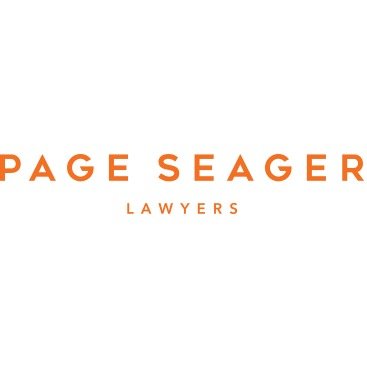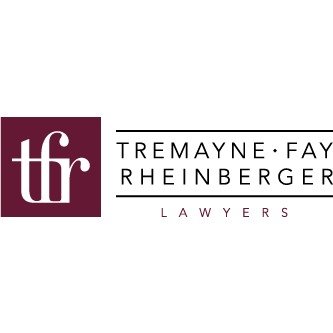Best Employment & Labor Lawyers in Hobart
Share your needs with us, get contacted by law firms.
Free. Takes 2 min.
List of the best lawyers in Hobart, Australia
Australia Employment & Labor Legal Articles
Browse our 1 legal article about Employment & Labor in Australia written by expert lawyers.
- Fired Without Warning in Australia: Unfair Dismissal Guide
- Most Australian workplaces are covered by the Fair Work Act 2009 (Cth), National Employment Standards (NES) and a modern award or enterprise agreement that set minimum pay and conditions. Strict deadlines apply: unfair dismissal and most general protections dismissal claims must be lodged with the Fair Work Commission within 21... Read more →
About Employment & Labor Law in Hobart, Australia
Employment and labor law in Hobart, Australia, is designed to regulate the relationship between employers and employees, ensuring fair treatment, wage protection, workplace safety, and effective resolution of work-related disputes. These laws stem from both state and federal legislation, including the Fair Work Act 2009 which sets the national framework for industrial relations. In Tasmania, local nuances and practices can influence the application of broader Australian employment laws, making it crucial for employers and employees alike to understand their rights and responsibilities.
Why You May Need a Lawyer
There are several common situations where individuals or businesses may require legal assistance in employment and labor matters:
- Unfair Dismissal: If you believe you have been dismissed unfairly or without proper procedure, legal advice can help you understand your rights and potential remedies.
- Workplace Discrimination: Facing discrimination at your workplace based on race, gender, disability, or other protected attributes can lead to legal action.
- Contract Issues: Disputes regarding employment contracts, non-compete clauses, or breach of contract can necessitate legal intervention.
- Wage Disputes: Legal guidance can be crucial if there are disagreements about wage rates, unpaid wages, or overtime pay.
- Workplace Safety Concerns: Issues related to workplace safety and health may require legal advice to address violations of safety standards effectively.
- Bullying and Harassment: Experiencing bullying or harassment in the workplace can be distressing and may need legal action to resolve.
Local Laws Overview
While federal employment laws provide the overarching framework, Tasmanian-specific laws can also come into play. Key aspects include:
- Fair Work Act 2009: Governs most aspects of employment including terms and conditions of employment, termination, and protections for workers.
- Anti-Discrimination Act 1998 (Tas): Prohibits discrimination in employment based on various attributes including age, race, gender, and disability.
- Long Service Leave Act 1976 (Tas): Outlines entitlements for long-term employees regarding long service leave in Tasmania.
- Tasmanian Industrial Commission: Resolves industrial disputes and provides assistance with award interpretation and enterprise agreements.
Frequently Asked Questions
What is the Fair Work Act 2009 and how does it impact me?
The Fair Work Act 2009 establishes the minimum standards for employment, covering issues like pay, leave, and work hours. It provides protections against unfair dismissal and outlines the rights and responsibilities of both employers and employees.
Can I be dismissed without any notice?
Generally, employees are entitled to a notice period or payment in lieu of notice unless they are dismissed for serious misconduct. The length of notice depends on the duration of employment as set out in the Fair Work Act or the employment contract.
How does the Anti-Discrimination Act protect employees?
This Act protects employees from discrimination based on attributes such as sex, age, race, and disability. Employers must provide equal employment opportunities and can face legal action for discriminatory practices.
What should I do if I experience workplace harassment?
If you experience workplace harassment, document the incidents and report them to your HR department. If unresolved, seeking legal advice can help explore further options such as filing a complaint with relevant authorities.
Am I entitled to overtime pay?
Eligibility for overtime pay depends on your award or enterprise agreement. Most full-time, part-time, and casual employees, under specific conditions, are entitled to additional pay for hours worked beyond ordinary hours.
What are my rights regarding redundancy?
If your position is made redundant, you may be entitled to redundancy pay, notice, and consultation as per the Fair Work Act. The entitlement details can vary based on your tenure and employment agreement.
Can I negotiate the terms of my employment contract?
Yes, you can negotiate the terms of your employment contract before signing. It's advisable to consult with a lawyer to ensure that the terms are fair and reflect your understanding of the agreement.
How can I resolve a wage dispute with my employer?
First, discuss the issue directly with your employer. If unresolved, you may contact the Fair Work Ombudsman for assistance or seek legal advice to explore further options for dispute resolution.
What are the workplace safety requirements I should be aware of?
Employers must provide a safe work environment free from hazards, complying with the Work Health and Safety Act 2012 (Tas). Employees also have a duty to follow safety instructions and report any unsafe conditions.
How do I lodge a complaint with the Tasmanian Industrial Commission?
You can lodge a complaint by contacting the Commission directly, either in person or through their website. They also provide guidance on the process of handling employment disputes and related matters.
Additional Resources
Here are some resources and organizations that may be helpful:
- Fair Work Ombudsman: Provides information and advice about your rights and obligations related to work.
- Tasmanian Industrial Commission: Offers services for resolving industrial disputes and other employment matters.
- WorkSafe Tasmania: Enforces health and safety standards in the workplace.
- Legal Aid Tasmania: Provides free legal advice and services in employment law.
Next Steps
If you believe you need legal assistance in employment and labor law, consider the following steps:
- Identify Your Issue: Clearly define the issue you are facing, whether it relates to unfair treatment, contract disputes, or another employment-related matter.
- Gather Documentation: Collect relevant documents such as your employment contract, correspondence, and any evidence related to the issue.
- Seek Legal Advice: Contact a lawyer who specializes in employment law in Hobart for professional advice tailored to your situation.
- Consider Alternative Dispute Resolution: In some cases, mediation or negotiation can resolve disputes without the need for litigation.
- Prepare for Formal Proceedings: If necessary, be ready to engage in formal legal action, understanding the process and potential outcomes.
Taking prompt action can be crucial in resolving employment and labor disputes effectively. Professional legal advice can provide the guidance needed to protect your rights and interests.
Lawzana helps you find the best lawyers and law firms in Hobart through a curated and pre-screened list of qualified legal professionals. Our platform offers rankings and detailed profiles of attorneys and law firms, allowing you to compare based on practice areas, including Employment & Labor, experience, and client feedback.
Each profile includes a description of the firm's areas of practice, client reviews, team members and partners, year of establishment, spoken languages, office locations, contact information, social media presence, and any published articles or resources. Most firms on our platform speak English and are experienced in both local and international legal matters.
Get a quote from top-rated law firms in Hobart, Australia — quickly, securely, and without unnecessary hassle.
Disclaimer:
The information provided on this page is for general informational purposes only and does not constitute legal advice. While we strive to ensure the accuracy and relevance of the content, legal information may change over time, and interpretations of the law can vary. You should always consult with a qualified legal professional for advice specific to your situation.
We disclaim all liability for actions taken or not taken based on the content of this page. If you believe any information is incorrect or outdated, please contact us, and we will review and update it where appropriate.
Browse employment & labor law firms by service in Hobart, Australia
Hobart, Australia Attorneys in related practice areas.
















